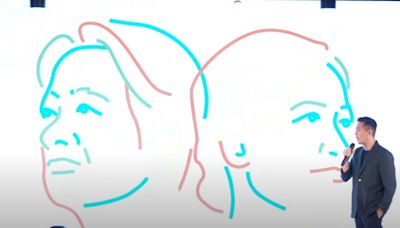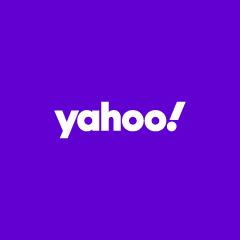搜尋結果
Users have a variety of options to find materials in Open Context, including simple, “Google-like” text searches (Figures 5 and 6), and more sophisticated, advanced searches that use Boolean logic."
- Definition
- Typology
- Citation
- Specific Commons
- Discussion
- Advocacy Groups
Discussing the Definition
Anthony McCann: "There are perhaps three primary ways in which the notion of the “information commons” has beentaking shape since Felsenstein’s seminal 1993 article promoting the notion of a “Commons ofInformation”. The first two have been developing in direct response to the demands anddiscourses of public library practice, first in the United States, and now internationally. Allmang etal. (2005) note in the context of library practice, for example, that a generally accepted meaningof “infor...
"Two commons exist, which differ from the traditional definition insofar as they are not a finite resource: the contents (i.e. the global commons of information and know-how available on the web) and the access (i.e. the information and communication technologies (ICTs) ensuring the availability of information regardless of time and location)."(htt...
The information commons is an idea whose time has come. In part this is a result of pressuresthat face the commons. Issues related to intellectual property law in particular are leading to whatmany are now calling the enclosure of the information commons - a process that separatespeople from ideas. This process is analogous to the fencing off of th...
The construction of the Information Commons takes many forms, the most important being the automatic process of knowledge exchange and cooperative production on the internet/web itself. But there are many specialized inititiaves to construct specialized areas, such as initiatives around access to scientific journals, the creation of specialized Int...
INSTITUTIONAL FORMAT OF INFORMATION COMMONS: THE PUBLIC DOMAIN
Definition and problematic of the public domain: “The public domain is a space where intellectual property protection does not apply. When copyrights and patents expire, innovations and creative works fall into the public domain. They may then be used by anyone without permission and without the payment of a licensing fee. Publicly owned national parks are also considered by many to be public domain lands. Because of the extensions of the terms of both copyrights and patents, and the privatiz...
THE POLITICS OF THE INFORMATION COMMONS
- Bifo, an Italian radical writer, on the private appropriation of collective knowledge: “The attempt at coercive privatization of collective knowledge has encountered resistance everywhere. Since intellectual labour is at the center of the productive scene, the merchant no longer possesses the juridical or material means to impose the principle of private property. When immaterial goods can be reproduced at will, the private appropriation of goods make no sense. In the sphere of semiotic cap...
THE RELATIONSHIP WITH THE PHYSICAL COMMONS
"The environment isn't just about nature anymore. It has become a metaphor for a battle against market — and sometimes governmental — encroachment that extends to virtually every corner of our society. Everything is up for grabs. Everything is for sale. Politicians and the media are essentially oblivious, just as they were oblivious to the threats to the environment before Rachel Carson wrote Silent Spring, about the dangers of the pesticide DDT. There isn't even a word for this encroachment...
The Information Commons Movement
Anthony McCann: "The term has become a bannerof action for a concerted lobby group of public policy activists and legal scholars from all over theUnited States, centred primarily in and around the civic communities of Washington D.C. Evenmore specifically, some of the most intense lobbying for the concept of the “informationcommons” can be located around a series of interconnected websites, in particularhttp://www.info-commons.org, and http://onthecommons.org. The first is the website of theI...
Associated Movements
The Free Culture movement at http://www.freeculture.org The Participatory Culture Foundation, formerly Downhill Battle, at http://participatoryculture.org/ The anti-DMCA group fights the free speech restrictions inherent in the Digital Millenium Copyright Act, at http://www.anti-dmca.org/ The Center for Digital Democracy, at http://www.democraticmedia.org/is a nonprofit organization working to ensure that the digital media systems serve the public interest. The French group Vecam, at http://w...
Fab Chain provides two additional tools to improve the connectivity of this growing ecosystem: FabCoin (transactable token) and FabRep (non-transactable token) that will allow fab labs and makerspaces to exchange resources and incentivise the development of the global maker movement. Together, these tools will foster a transition to a more ...
2014年9月7日 · Geeks Without Bounds was founded in 2010 by Johnny Diggz and Willow Brugh as a fiscally sponsored [1] project of The School Factory. Immediately, hackathons became the major focus of the organization as a method to find new solutions to ongoing problems in disaster response and humanitarian aid. Some of the solutions created at GWOB-organized ...
Abstract. "This paper examines the intersection between Google's desire to "database the world's knowledge" and the many ways in which Google's approach affects both the nature of the information users find and how they find it. The paper will argue that Google has monopolized the socially constructed nature of the World Wide Web; Benkler's ...
Definition. From the Wikipedia: "Geotagging is the process of adding geographical identification metadata to various media such as photographs, video, websites, or RSS feeds and is a form of geospatial metadata. These data usually consist of latitude and longitude coordinates, though they can also include altitude, bearing, accuracy data, and ...
I’ll call it reverse syndication. Instead of selling my content to you, what say I give it to you for free? Better yet, I pay you to publish it on your site. The condition: I get to put my ad on the content. I will pay you a share of what I earn from that ad based on how much audience you bring me. That model values the creation of the audience.






